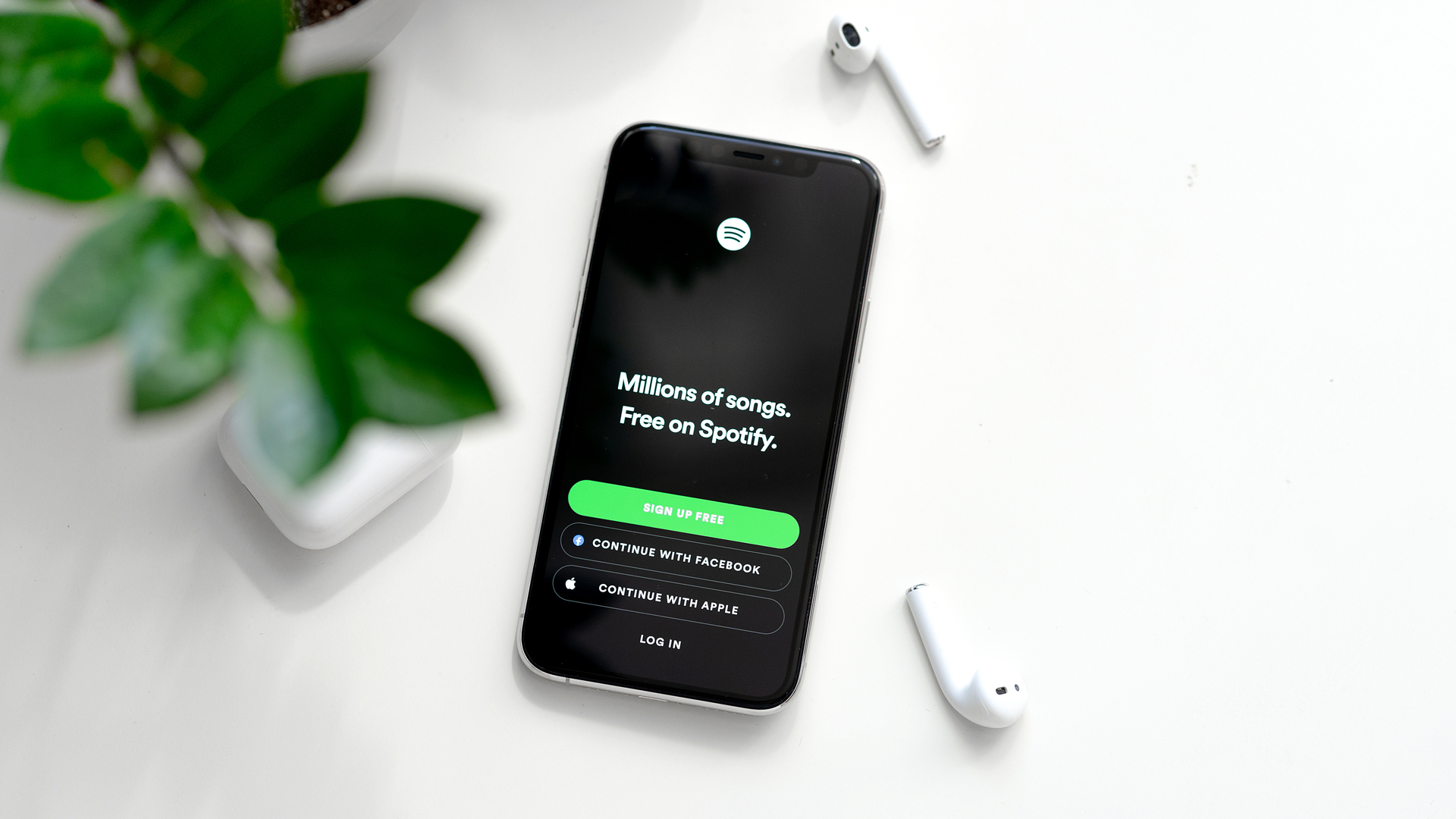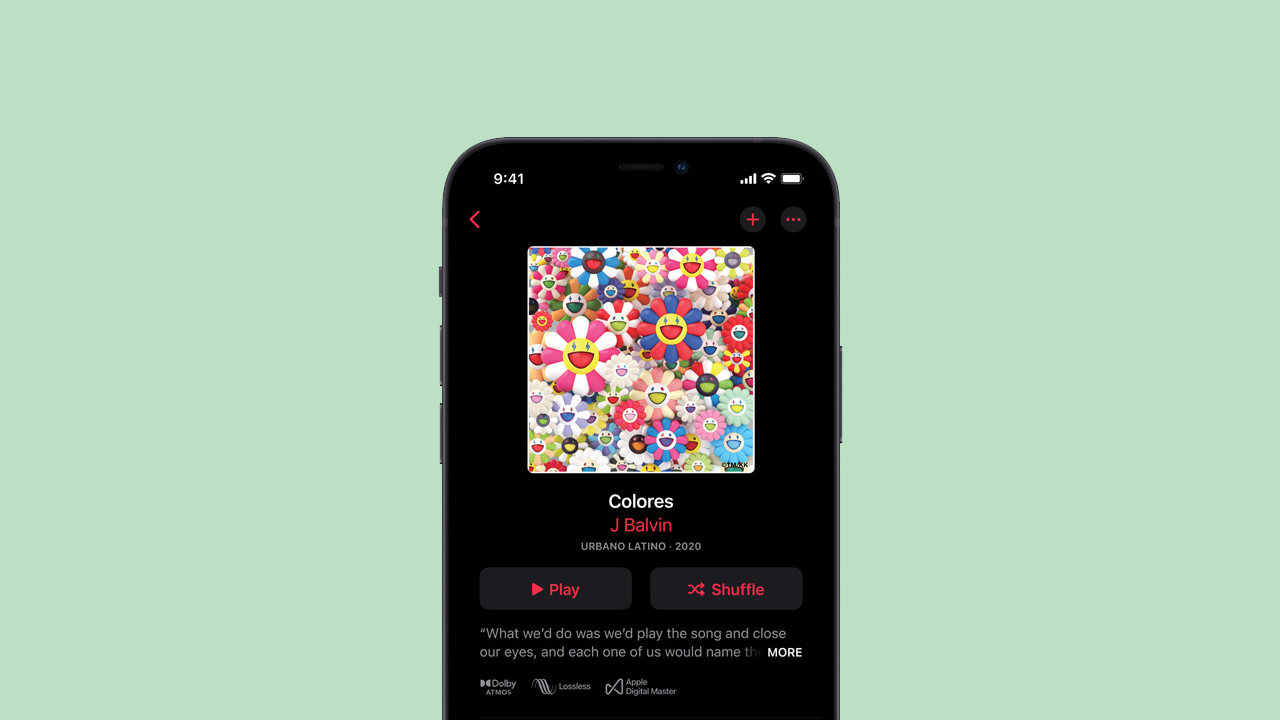Spotify will support AirPlay 2 – but iOS users are still better off with Apple Music

Spotify is bringing AirPlay 2 support to its iOS app, despite a representative previously claiming on its forum that "audio driver compatibility issues" meant it would be unable to do so for the foreseeable future.
As reported by iMore, Spotify quickly backtracked on this position, clarifying that the streaming service will support Apple's AirPlay 2 technology. There's no word yet on when this will actually materialize, but Spotify said it will post updates when it becomes available.
- Read our Spotify review
- The best AirPlay 2 speakers you can buy
- Apple Music vs Spotify: which service is best for you?
AirPlay 2 is Apple's wireless streaming standard, allowing you to cast music from your iPhone, iPad, or Mac to your speakers – including Apple's own devices like the HomePod mini as well as compatible third-party devices like the Sonos One.
While the Spotify iOS app already supports the previous version of AirPlay, support for AirPlay 2 would bring multi-room audio capabilities, low latency, and stereo pairing for Spotify users with compatible speakers.
It might be time to switch to Apple Music
While Spotify is still working on bringing AirPlay 2 support to its iOS app, we wouldn't hold our breath for a speedy resolution. As developer Marco Arment points out, integrating AirPlay 2 into the app isn't as simple as Apple's four-step process for developers makes it sound:
…and that new API:- is barely documented- has no public sample code- is full of major gotchas- can’t change speeds seamlessly- doesn’t provide precise timing- requires much more complex logic- is less efficient, which can cause background CPU-overage terminationsAugust 6, 2021
Furthermore, Apple and Spotify aren't exactly on the best of terms, with Spotify filing an antitrust complaint against the tech giant in 2019 – and, since the launch of Apple Music, the two companies have become direct rivals.
If you're a HomePod user holding out for Spotify's AirPlay 2 integration, you're probably better off just switching to Apple Music for the time being.
Sign up for breaking news, reviews, opinion, top tech deals, and more.
There's no native support for Spotify on the HomePod, even though Apple has opened up third-party integration for services like Deezer, Pandora, and iHeart Radio. Right now, the only way to use Spotify on the HomePod is to cast your music via AirPlay, which doesn't allow for voice control – one of the main reasons for using a smart speaker as opposed to a regular wireless speaker.

There's also the fact that, right now, Apple Music is offering much better value for money to its subscribers. Following a recent update, you can now enjoy Lossless and Spatial Audio with Apple Music, at no extra cost.
The Lossless tier brings hi-res audio to the streaming service. Starting at CD quality (16 bit / 44.1kHz), it goes up to 24 but / 48 kHz, and can be played natively on Apple devices. And, for audiophiles, there's Hi-Resolution Lossless, which increases all the way up to 24 bit / 192kHz. If you have a decent pair of headphones, you should find your music sounds clearer and more detailed.
Spatial Audio takes 5.1, 7.1, and Dolby Atmos content and applies directional audio filters, placing sound in a 3D sphere – making it feel as though your music is coming at you from every angle for an immersive listening experience.
Meanwhile, Spotify is looking to bring in its own higher quality (but not hi-res) audio tier with Spotify HiFi – and it's expected to cost more than a Premium subscription to the service.
So, if you have a HomePod, care about hi-res audio and multi-room setups, and don't want to pay extra for higher quality sound, switching from Spotify to Apple Music seems like a no-brainer – at least until AirPlay 2 comes to the streaming platform.
- Read our Apple Music review

Olivia was previously TechRadar's Senior Editor - Home Entertainment, covering everything from headphones to TVs. Based in London, she's a popular music graduate who worked in the music industry before finding her calling in journalism. She's previously been interviewed on BBC Radio 5 Live on the subject of multi-room audio, chaired panel discussions on diversity in music festival lineups, and her bylines include T3, Stereoboard, What to Watch, Top Ten Reviews, Creative Bloq, and Croco Magazine. Olivia now has a career in PR.